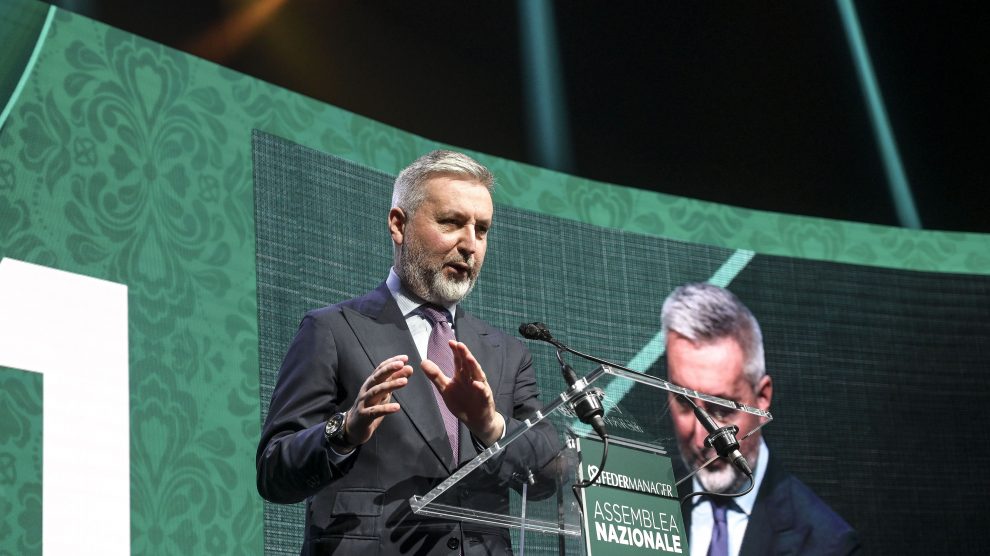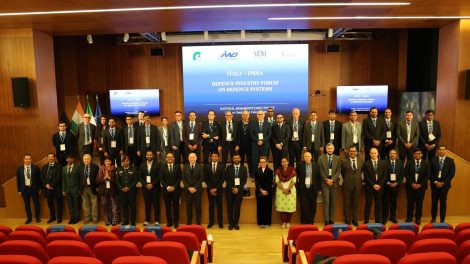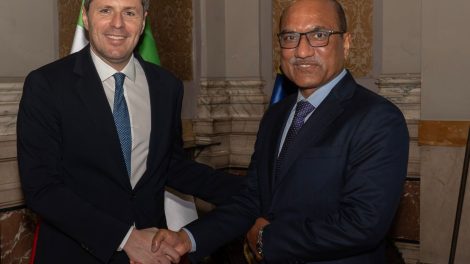Defence Minister Lorenzo Guerini has announced Rome’s decision to effectively suspend the military cooperation agreement with Ethiopia it had signed on April 10, 2019.
The move follows in Washington’s steps and is aligned with a global trend, dictated by the military crisis between the Ethiopian government and the Tigrayan rebels. The war that Prime Minister Abiy Ahmed is waging against the Tigrayan forces renders several manners of cooperation with Addis Ababa rather complicated.
Minister Guerini, whose choice has been much appreciated by the international Tigrinya community, also pointed out that Italy has been refusing any arms request it received from the Armaments Authorisation Unit (UAMA), “as we cannot exclude [they] could be used in the context of the ongoing hostilities.”
When replying to a parliamentary interrogation five months ago, the official stated that “Italy strongly supports the full and immediate cessation of hostilities and the withdrawal of Eritrean troops from Ethiopian soil, as well as full, safe and unconditional humanitarian access to the regions most affected by the conflict, respect for international humanitarian law, the conclusion of transparent and independent investigations into serious human rights violations and abuses and, last but not least, the urgent launch of an effective and inclusive process of national dialogue”.
Minister Guerini’s answer, explained Nicola Pedde (IGS) on Meridiano42.it is “one of the first elements of official clarity regarding the Italian position on the conflict in Ethiopia, reaffirming the position long expressed by the Ministry of Foreign Affairs at diplomatic and bilateral level.
Rome’s position, as it emerged from the Defence’s, also acknowledged the presence of Eritrean fighters in the conflict and put forward the request for an independent investigation to shed light on the serious crimes that have been committed during the clashes.
This line is very similar to that taken by the United States, where President Joe Biden is pressing the Prime Minister (and former Nobel Peace Prize winner) to stop the fighting. In December the White House decided to suspend the trade agreement known as the African Growth and Opportunities Act (AGOA, which allowed duty-free access to the US market).
The war has been going on since November 2020. It came about after the government postponed the elections, which it justifies as being linked to the pandemic but which the opposition sees as a way of blocking the status quo.
The Ethiopian government has hit the rebels of the Tigray People’s Liberation Front, the ethno-nationalist group that once led the country and is now isolated in the northern region in opposition to Abiy Ahmed, hard, even using Turkish, Emirati and Iranian weapons.
Internal (and externally sought) contacts are underway to achieve de-escalation, but it’s unclear what progress this might lead to as of now. The level of conflict is fierce; the Oromo forces (the Federalist Congress and the Liberation Front) and the Ogaden National Liberation Front have also sided with the Tigrinya rebels.
Several political groups have decided not to participate in the National Dialogue Commission set up at the end of December 2021, because it is perceived as being too unbalanced towards the government.





